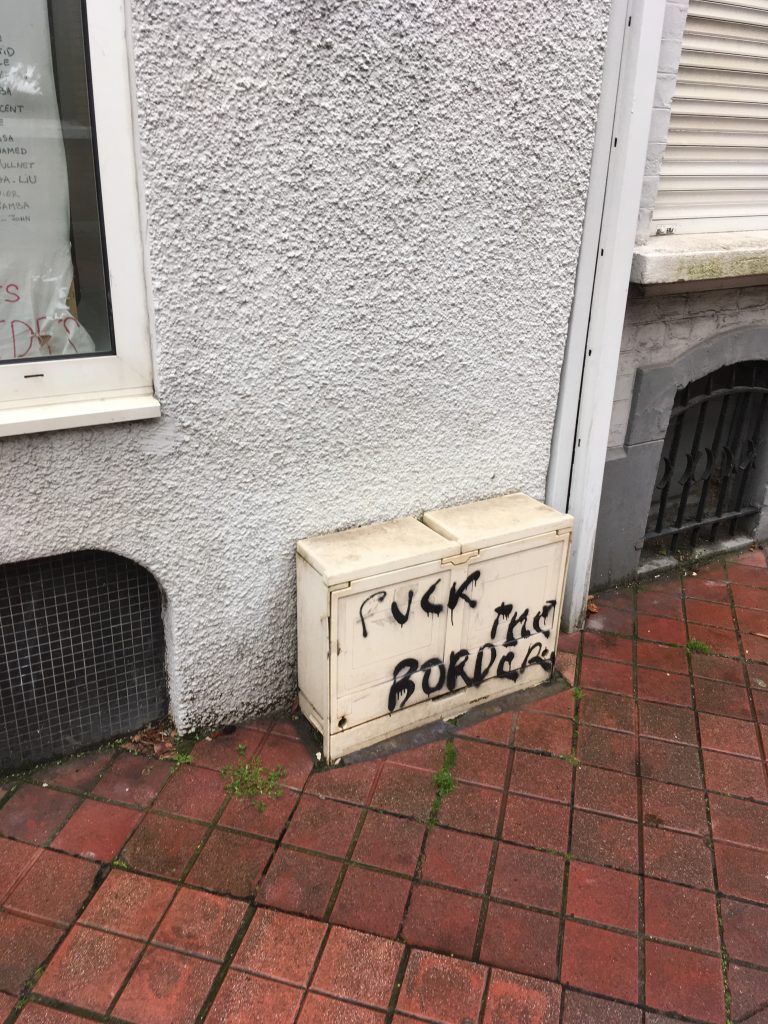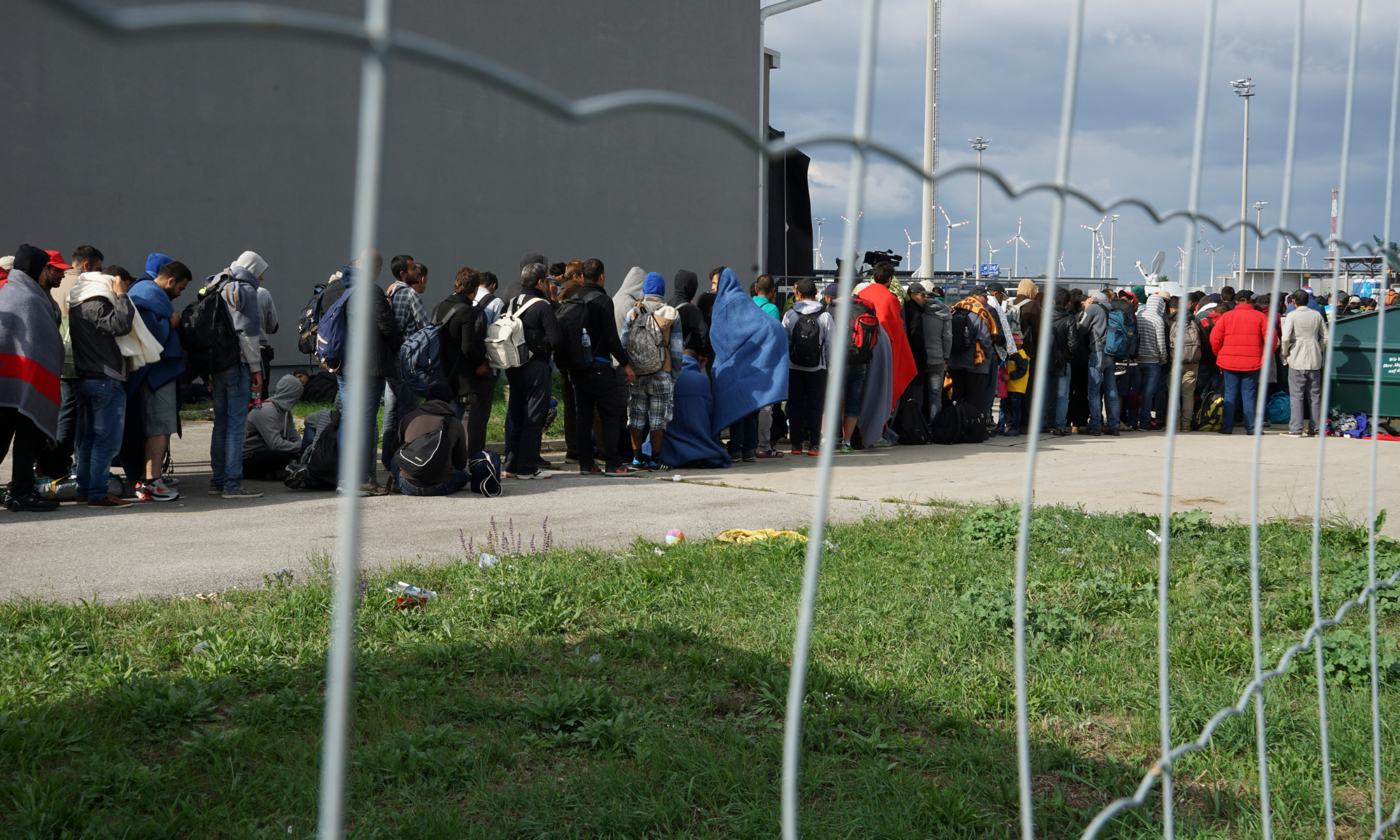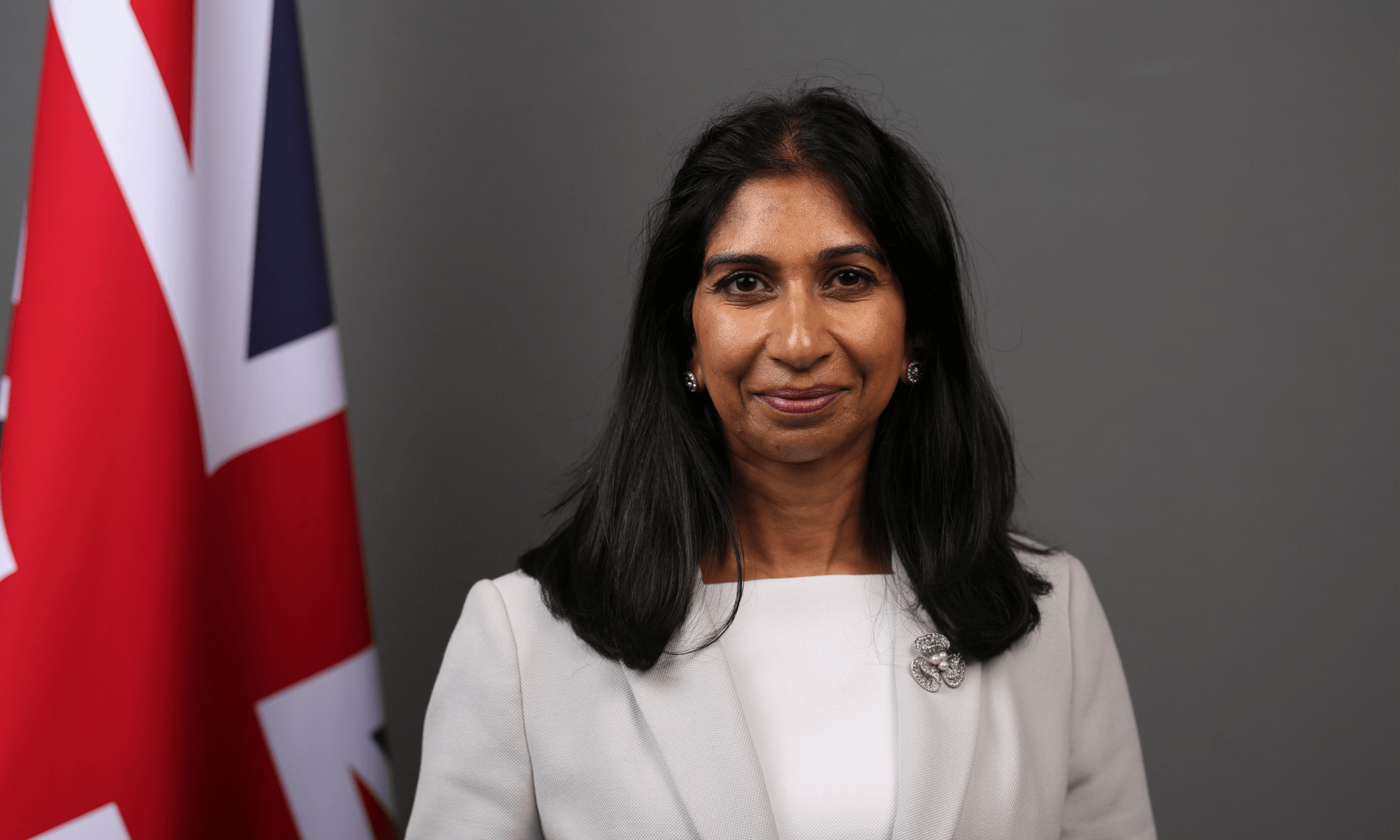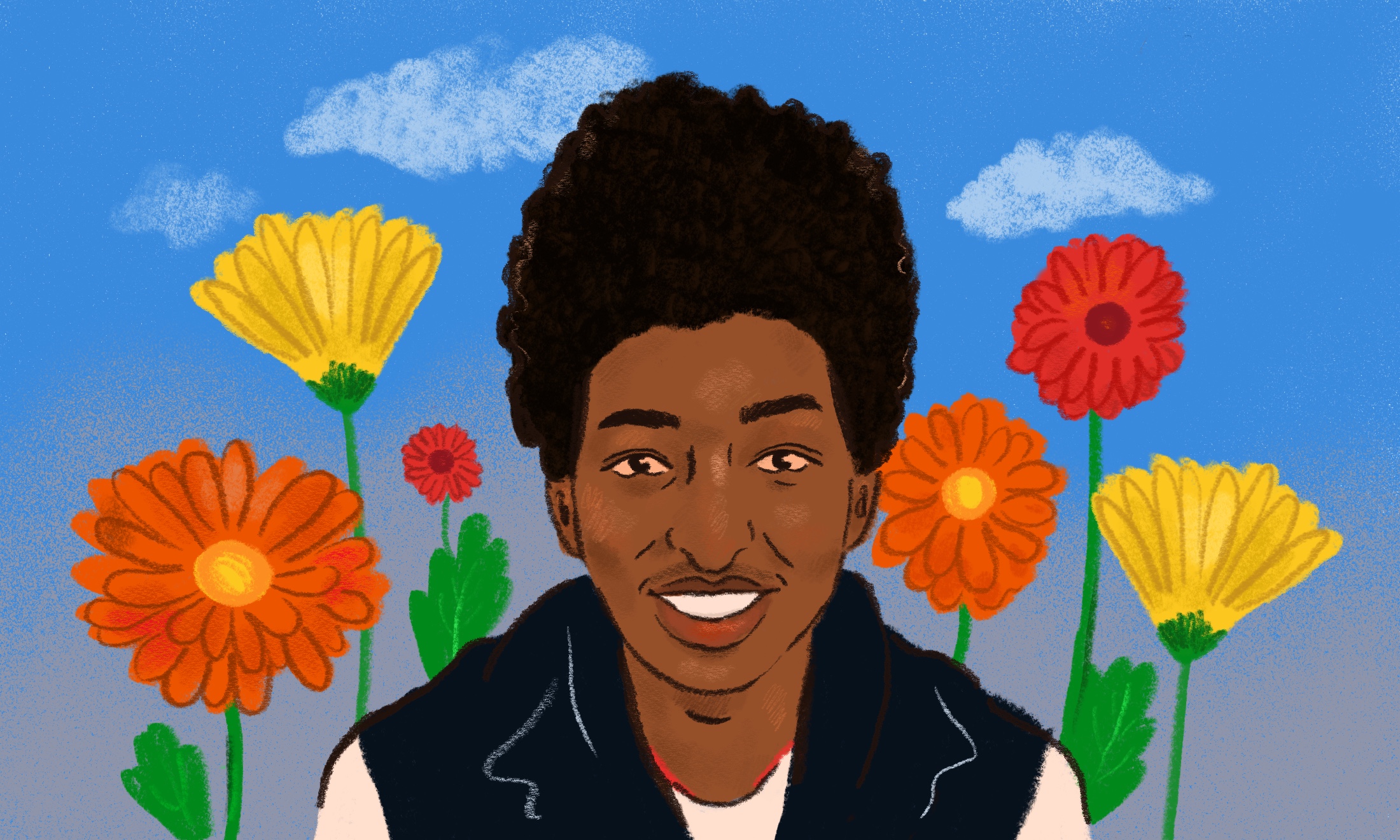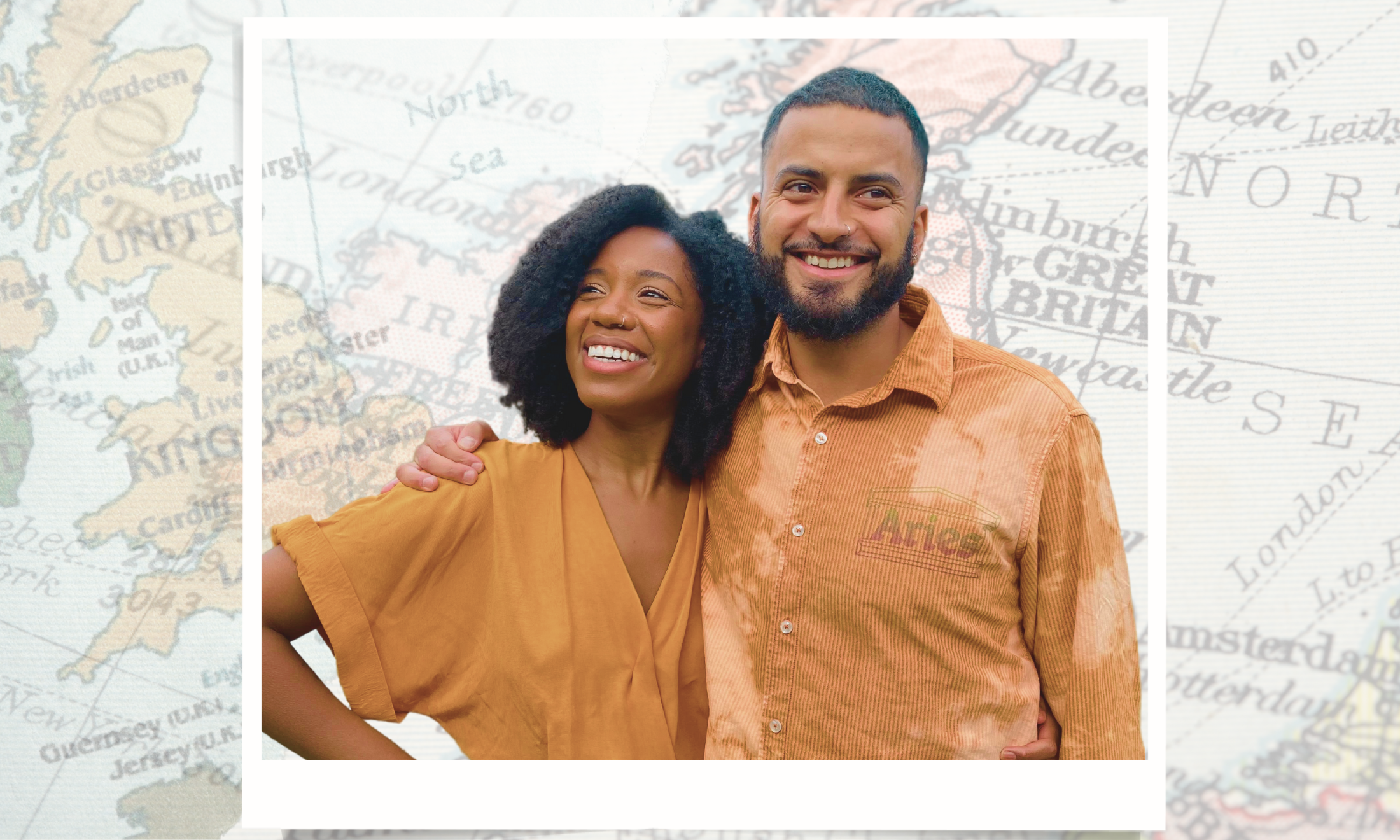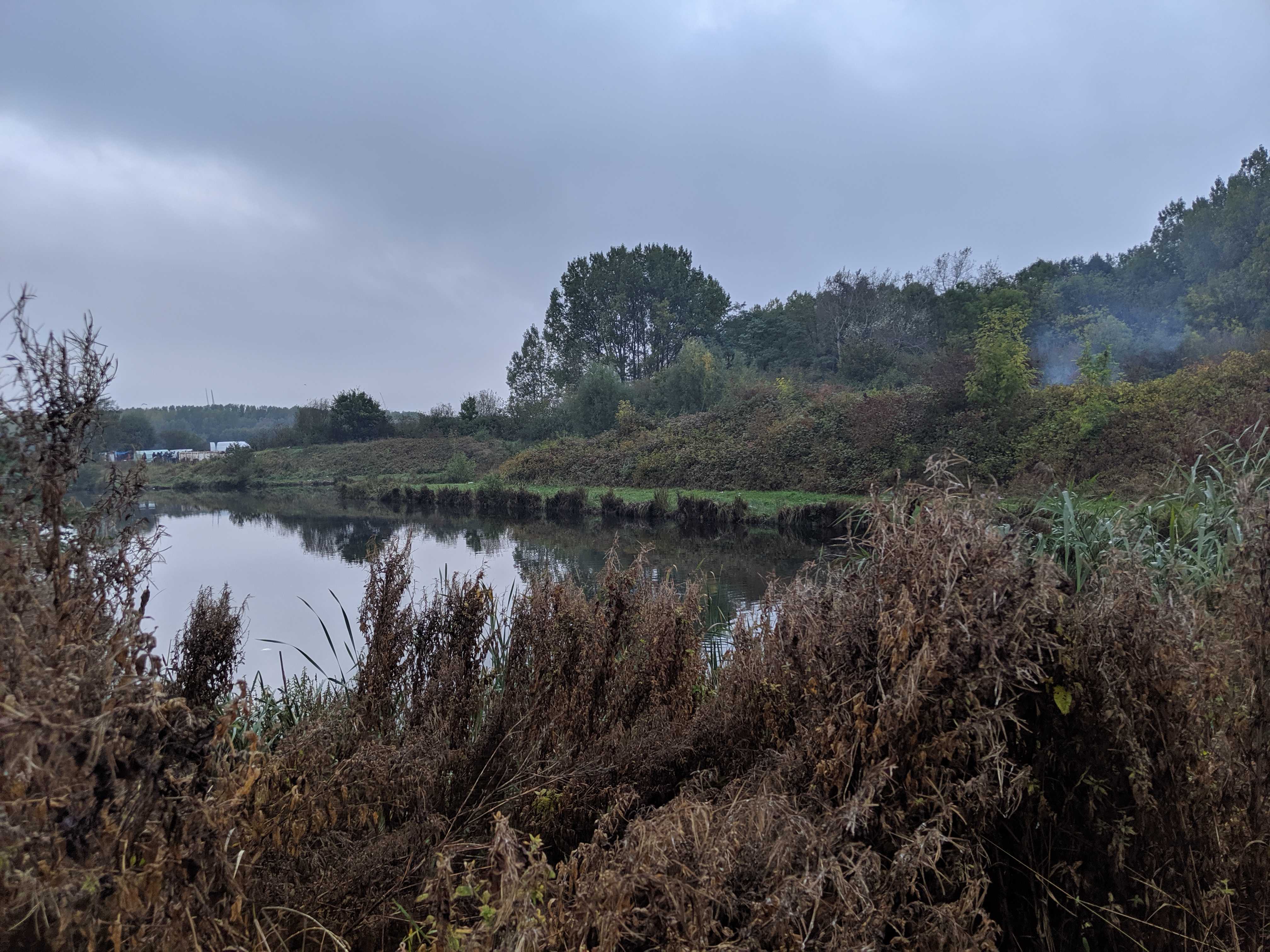
Two years since the camps ‘closed’, there’s still a humanitarian crisis in Calais and Dunkirk
Charlie Brinkhurst Cuff and Leah Cowan and Tara Joshi
22 Nov 2019
In the misty belly of a nature reserve on the edge of a grey motorway in northern France, hundreds of people are currently living in makeshift camps, trying to survive and raise families while also making attempts to travel to England. A nine-month pregnant woman is living in a tent, due to give birth. It’s cold, and the incessant rain and drizzle which hangs over this region means the ground is slick with mud. A few fields away, scores of young men are now without any form of shelter at all – their scant tents and sleeping bags are regularly destroyed or abandoned thanks to continuous raids by the French police. They exist in damp, unhealthy discomfort and there is no provision of sanitation. The situation here, according to Help Refugees, an international charity working with local partners in 12 countries, is critical.
In light of 39 Vietnamese people being found dead in the back of a lorry in Essex in October, and arrests after 15 men and boys were found (alive) in a lorry in Wiltshire, it is more important than ever that we understand the nature of British border violence, and the rigid immigration structures which push people into such dire and life-threatening circumstances.
“Around 2,000 people are still living in Calais and Dunkirk, in worse conditions than before, including 300 unaccompanied minors”
Our journey began with the realisation that media noise about the situation had diminished to near-silence. Two years prior, a flurry of news pieces appeared about the camps in the region “closing” and people being dispersed to other French cities. These perhaps nurtured the idea in the international imagination that the humanitarian crisis in northern France was no longer a pressing issue. A short phone call in August with Maddy Allen, Field Manager at Help Refugees, confirmed that this was far from the case: around 2,000 people were still living in Calais and Dunkirk, in worse conditions than before, including 300 unaccompanied minors. We traveled to the region alongside Help Refugees, to learn about the current situation and to find out if we could be useful in bringing attention to the immediate needs and demands of people living in the camps.
Conditions are the worst some of the volunteers have ever seen. When we meet her in person, Maddy explains that people in the camps are struggling to manage health complaints which “people attribute to the Second World War”, such as tuberculosis, scabies and immersion foot (also known as trench foot) from “inadequate shoes and having wet socks constantly.” Small children slip and slide around in the sludge, kicking footballs under the watch of their exhausted parents; some children have wellies and waterproof clothing provided by local charities, but many do not. One boy is dressed in a teddy-bear onesie, wearing sandals.
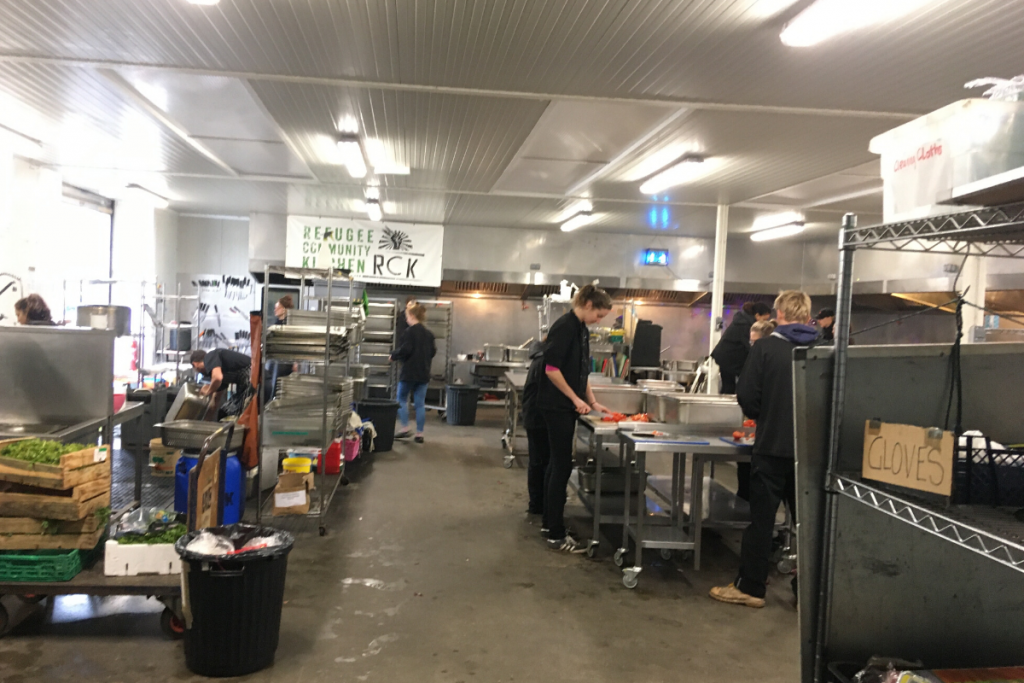
Many of the people we meet in Calais and Dunkirk are Kurdish Iraqi and Kurdish Iranian, fleeing conflicts and oppression in Iran, northern Syria and the surrounding regions. The Syrian Civil War, which grew out of the Arab Spring and the violent suppression of uprisings by President Assad in 2011-2012, has been characterised by the prohibited use of chemical weapons, and the displacement of 5.6 million people worldwide (and a further 6.6 million people inside the country). Britain’s complicity in the violence cannot be overstated: Freedom of Information Act requests reveal a conservative estimate of over 4,000 recorded drone strikes launched by UK military forces in Syria alone since 2014. And yet, people fleeing British air strikes and arriving in northern France are being held back from completing the last stretch of their journey to England – despite the British government’s key role in making their homes uninhabitable and their livelihoods untenable.
After “the Jungle” in Calais was torn down by French authorities in 2017, nothing was put in place to support the roughly 8,000 people who had lived there from January 2015, the majority of whom were planning to seek refuge in the UK. “Realistically, there was always gonna be families in that area, and there was always gonna be a need,” explains Florence, part of the Refugee Women’s Centre team hosting gal-dem in Calais and Dunkirk. “So instead of just disbanding, we decided to remain, get a van and be a mobile service that goes to different sites where people are living.”

Still, living conditions in the camps have been incredibly difficult these past two years. Florence tells us that last winter the Mayor of a suburb in Dunkirk opened up a local gymnasium so people could sleep indoors, but it closed in May 2018. Since then, Florence remarks that “sometimes water points are installed, and then there’s an eviction and another site opens up and water points don’t exist”. The battle to secure very basic infrastructure such as clean running water is seemingly constant. Without toilets or any sewerage systems, simply staying clean and avoiding becoming sick is a daily challenge.
We’re sitting in a large, innocuous warehouse that is the centre of activity for the volunteers here. The Refugee Community Kitchen (RCK) is based in this space, blasting out Bill Withers, Beyoncé and the Moana soundtrack while volunteers cook up vats of curry, rice and salad. The RCK makes simple, easily scalable meals which are cooked and distributed to 1,500 people each day in Calais and Dunkirk. A young guy we chat to during the dinner distribution in Dunkirk jokes when we ask how the food is: “Rice and curry!” he replies with a shrug and a glint in his eyes, “Same as every day.”
Elsewhere in the warehouse, there are boards with intricate rotas; piles of firewood which will be distributed throughout the winter, and shelving units stacked with boxes and crates of donations: spices, grains and pulses, clothes, shoes, tents, and toys and halal lollipops for the children. It is stocked with essentials which will quickly deplete as the cold weather sets in. This scarcity of resources and lack of international support creates significant operational difficulties; Maddy and her team explain their policy of not distributing items like tents and blankets unless there is enough for everyone, to avoid creating divisions and conflicts in the camps. Often they will distribute resources to families and women first, which in turn can make already marginalised individuals even more vulnerable. “Especially for single women…” a volunteer remarks, “a single woman will be a priority for access to accommodations, access to healthcare, access to like…a tent, and so it’s more common that a random guy would […] use [her access to resources] for exploitative purposes to try and partner up with a woman, for protection.”
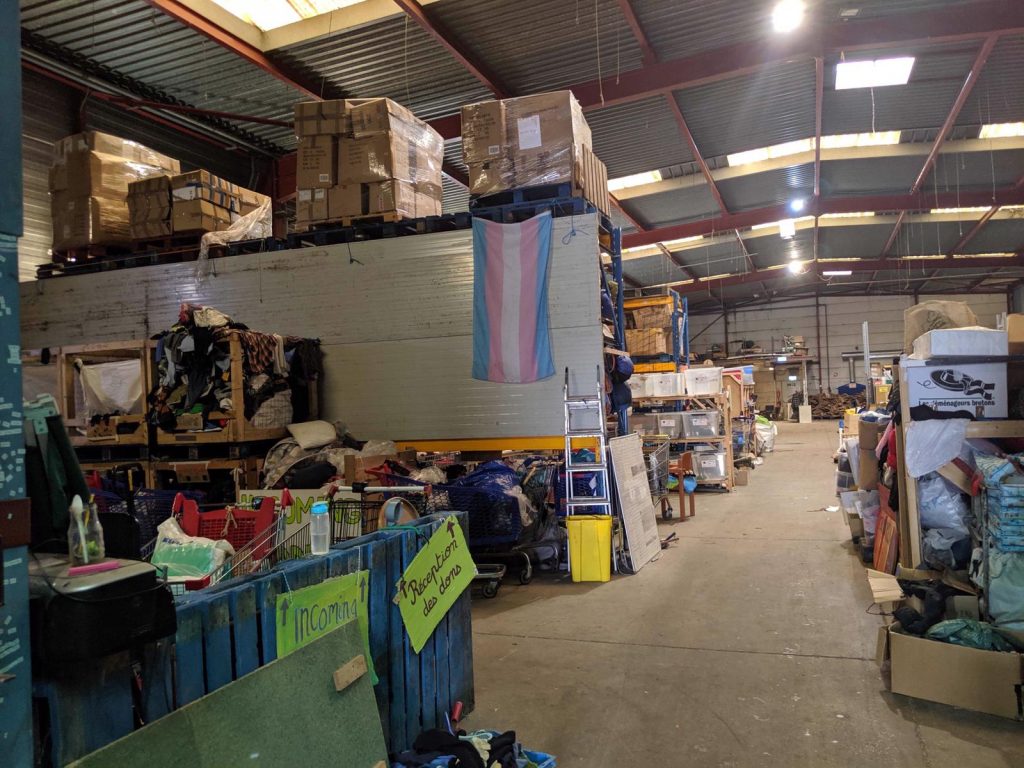
In addition to families and single women, there are also the unaccompanied minors living in Calais and Dunkirk, waiting for the opportunity to try to cross to the UK. We meet one bright young girl who has been in Calais for two years, living out an existence without schooling or a set path, in a small hotel room with her brother and sister, and much to her very normal 11-year-old disappointment, no Wi-Fi. At the day centre, run by three local charities, she teaches us how to make friendship bracelets by intricately knotting colourful threads (some of us have more success than others). She loves music too, taking control of a laptop to play DJ for us, putting on some of her favourites while quietly, shyly singing along. We chat away for over an hour, learning about Moroccan reality TV stars and snacking on crisps. Of course, we don’t talk about the questions looming ahead of her – how long will it take her to reunite with her parents? What does the future hold? These are huge questions for an 11-year-old to comprehend on her own, and with Brexit on the horizon, the situation for unaccompanied children seems especially precarious.
“The situation on the ground is incredibly changeable and unpredictable, demanding high-level and agile operational thinking”
Later, Maddy and Florence share their concerns that the Dublin III Regulation – which enables stranded children to be reunited with their relatives in the UK so they can claim asylum – will be scrapped in the event of a no-deal Brexit. Their concerns seem well-founded, given that just last year, the Court of Appeal ruled that the government had broken the law in refusing entry to Britain to child refugees, and not giving reasons for refusal – therefore denying the chance of appeal. This breach of law flouted the newly implemented “Dubs Amendment”, introduced by Labour Peer and child refugee Lord Dubs in 2016, which required the government to permit entry to 480 refugee children from Europe.
The backdrop to gal-dem’s visit to northern France was marked by another tragedy. On 15 October, a 22-year-old man and a 17-year-old teenager from Iraq drowned while crossing the English Channel on a boat. Their underreported deaths were among a handful of others this year in the channel – with 2019 being the first year that people dying in the water while trying to get to England have been recorded. In August, an Iranian woman fell into the water from a boat and drowned off the coast of Ramsgate, and a man named Masoud Niknam died while trying to swim across using a makeshift life jacket made from plastic bottles and yoghurt pots. The renewed desperation of people’s journeys is notable. The recent deaths meant that the Refugee Women’s Centre were extending extra support to grieving friends, so we quickly decamped to a hotel in Calais in order to not take up much-needed bed space – a lesson that the situation on the ground is incredibly changeable and unpredictable, demanding high-level and agile operational thinking from the organisation.
“An unexpected FaceTime with a woman and her young child and baby is met with joy and tears – the Women’s Centre hadn’t heard from her for two months”
As we travel around with the Women’s Centre team in their well-used red car, the prospect of crossing the water to the UK understandably hangs perpetually in the air in conversations. It’s something that people are attempting as much as is possible, which is mirrored by the aggressive number of barbed wire fences that seem to cover much of Calais, to stop people leaving. The language around the crossing feels surreal – “she won’t make it, because she’s trying today”, is what we’re told about a potential interviewee who will no longer be able to meet with us during our time there. For many of the volunteers who return to Calais as often as possible, it’s a complicated feeling of wanting to reunite with the friends they’ve made, but also hoping not to see them – hoping they’ve made it to the UK. An unexpected FaceTime with a woman and her young child and baby is met with joy and tears – the Women’s Centre hadn’t heard from her for two months.
We return to London filled with the stories of people who have been kind enough to sit with us and share meals, tales, hopes and dreams. We are left with the impression that life at Britain’s border is a constant ricochet between extreme emotions and experiences: anticipation, perseverance, resourcefulness, tragic deaths at sea and the relief and justice of life paths in a new land. Soon, we are planning our next visit to the Women’s Centre to continue to make connections on the ground and help to recount the life stories of people who deserve to be able to live in this country just as much as we do.
Over the winter months, northern France sees a huge dip in volunteers and donations. You can volunteer your time (even if it’s just a day or two) to Help Refugees, or the Refugee Community Kitchen – both of these are also looking for donations of items such as warm clothes or tinned food (find regularly updated lists here and here), as well as donations of money. If you identify as a woman or non-binary person, you can also find out how to volunteer with the Refugee Women’s Centre here, although you must be able to commit to at least two months due to the nature of their work. You can donate to the Women’s Centre here.

